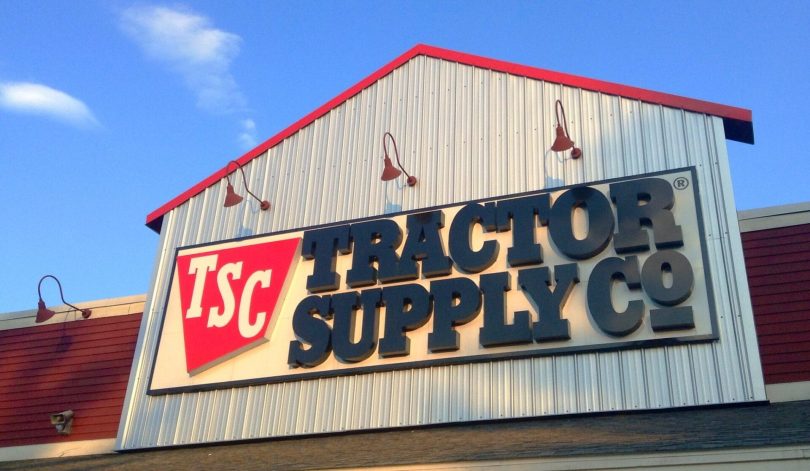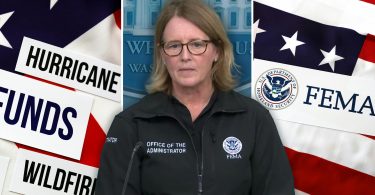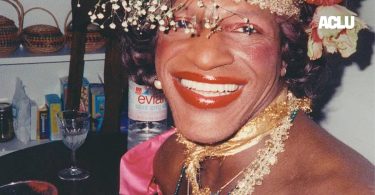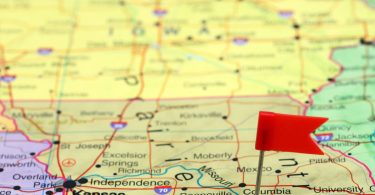By Amy Price Azano and Clint Whitten
This article first appeared in The Daily Yonder, a non-profit news organization covering rural America.
EDITOR’S NOTE: In late June, the Tractor Supply Company announced that it was eliminating the corporation’s diversity, equity, and inclusion goals; ending its practice of providing data to the Human Rights Campaign, an LGBTQ+ advocacy group; and stopping the sponsorship of gay pride festivals and voting campaigns. The changes came after an anti-LGBTQ+ media producer launched a campaign to boycott the “rural lifestyle” retailer over its corporate policies, saying they did not reflect the values of the business’ customer base.
Dear Tractor Supply Company,
In your recent statement, explaining how you’ve taken customer feedback to heart, you remind us of all the good you’ve done for “Life Out Here.” In your 85 years, you’ve supported veteran causes and responded to emergencies, invested millions into state fairs, animal shelters, rodeos, and farmers markets. And most germane to our sense of rural, you’ve invested in our FFAs, 4-H clubs, and educational organizations. And yet, some customers have expressed disappointment. With such community-centric and noble causes, we wonder why.
It seems there would be great pride in your efforts, particularly those that have lifted up diverse employees and customers. Only last year, you were included on Bloomberg’s list of companies with high gender equality and earned 4 out of 5 stars on Newsweek’s 2023 rankings for “America’s Greatest Workplaces for Diversity,” as noted recently in the Washington Post. At nearly $13 billion in revenue, it seems you’re doing well to support our rural communities. And yet, some of your customers have been disappointed. That seems odd given your track record and revenues, wouldn’t you say?
We can’t help but question the motivation for your statement. Did you hear from customers, or does your statement pander to a boycott initiated by right-wing conservative Robby Starbuck–the candidate who has lost in a Tennessee election, the director who duped LGBTQ+ activists in his anti-trans “documentary,” The War on Children? Are you taking a moral stance or responding to a 5% drop in your sales due to groupthink organized by a homophobic and bigoted podcaster? Either way, don’t presume to generalize any of this to rural America and don’t assume familiarity of rurality when, as a big corporation, it seems you are falling in line with historical examples of exploitation of rural communities.
In the rural community where we live and work, a number of local businesses recently partnered with us during Pride Month to celebrate inclusion and our thriving rural queer community. Our FFAs and rodeos and farms and dog owners across rural America are full of LGBTQ+ individuals who are deeply tied to their rural communities. Rae Garringer is also a podcaster – but one actually from and living in a rural area, is a goat farmer, and queer community member. In their podcast, Country Queers (and forthcoming book by the same title), they share the diverse experiences of rural and small town LGBTQIA2S+ folks, including the experiences of queer, trans, nonbinary farmers and community members living, loving, and working in the country – you know, Life Out Here. This is, perhaps, a better podcast to follow. One working against queer rural erasure–the opposite of what your statement serves to do.
Other queer farmers are taking to their own social media to combat the harm caused by this statement. Scott, an exhibition poultry farmer and TikToker (@2guysandsomeland), opined about the decline in farmers throughout recent generations, advocating that farming is for everyone and that we must uplift the folks growing our diverse foods. queer and BIPOC folks have deep rooted history in agriculture and farming communities. It seems odd you would denounce and devalue the individuals who make up your customer base instead of focusing on the quality of your product–feeding animals. If you’re still unsure that queer farmers exist, you may check out the educational work of Brain Brigantti (@redleafranch), Flint Del Sol (@justflintisfine), and Hayden Fox (@haydenjfox).
Your statement reminds us that big business is for profit. Don’t pretend the change in your policy is about rural America. If it were, you would continue to stand firm against homophobic, racist, and bigoted pushback who demand something different from you. You would keep DEI policies in place and report data to the Human Rights Campaign to ensure that all of your employees and customers were treated equitably, ethically, and respectfully. You would remind naysayers of your inclusive policies and practices that our rural spaces are full of diverse humans from diverse backgrounds. We are queer and Indigenous and Black and Brown and multilingual; we are Woman-Owned; we are proud veterans. And we all deserve to live freely in our rural communities.
Amy’s father is one of those veterans–an eighth generation rural Appalachian and an advocate for LGBTQ+ equality. When asked why, he retorts wisely, “Why else did I fight in a war if not to ensure that all Americans could live freely.” Tractor Supply Company, you should have listened to feedback from people like him (you know, former customers).
The problem with your statement is that you want people to believe this is a rural issue. As you put it, “further focus on rural America priorities.” Rural people show up for each other. You want to be a good neighbor? Then why would you change your way of “gettin ’er done” because of some noise from a Nashville-based city podcaster’s taunting. I don’t think most of us rural folks would care too much what city folks think.
You want us to believe you care about rural American priorities, then care about them–all of them. Care about queer farmers. Black farmers. Women farmers. All farmers. Farmers farming in urban spaces. Well, shoot, all dog owners for that matter – and so many of us who (used to) shop in your stores for what we thought was a slice of authentic rural life. However, the only “rural life” you provide is one of stereotypes and monolithic assumptions that rural folks don’t care about Pride or carbon emissions. We do care; we care about the biodiversity within the lands we work, animals we tend for, and our neighbors.
You are correct, Rural America is the backbone of our nation and what makes it great is our diversity. But, now you’ve made it clear, we’re the ones you’ve been pandering to. If you care more about the bigots and homophobes calling you out and not the loyal customers who have been coming to your rural stores all these decades – well, golly, you must think we can’t read between the lines of your statement.
Amy Price Azano, Ph.D., is a professor and the founding director of the Virginia Tech Center for Rural Education. Clint Whitten, Ph.D., is a postdoctoral associate with the Virginia Tech School of Education and College of Liberal Arts and Human Sciences. Whitten and Azano are co-editors of the forthcoming Rural Education and Queer Identities: Rural and (Out)Rooted, a collection of empirical, narrative, and creative essays focusing on the intersection of rural education and Queer identities, scheduled for publication by Routledge in Spring 2025.
Photo Credit: Amy Price AzanoPhoto Credit: Clint Whitten







